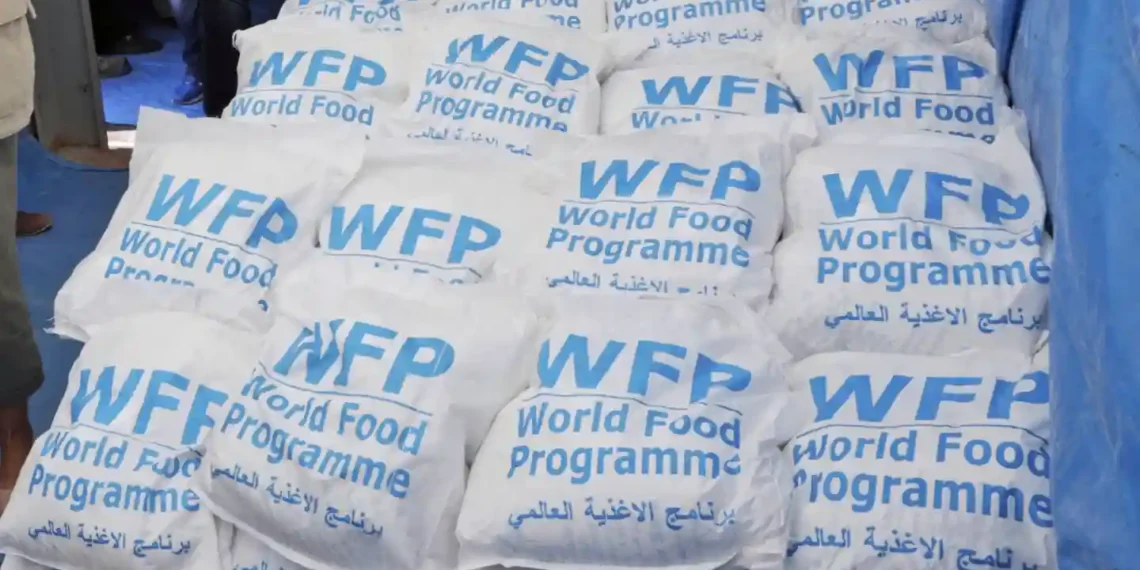Trump Administration Cuts Life-Saving Food Aid, Threatening Millions of Lives
The Trump administration has abruptly ended funding to the U.N. World Food Program (WFP), halting crucial emergency food aid for millions of people across Afghanistan, Syria, Yemen, and several other impoverished nations, according to officials and reports from The Associated Press. The cuts, targeting some of the most vulnerable populations on the planet, have drawn immediate criticism from humanitarian organizations, with the WFP calling the decision a “death sentence” for millions facing starvation.
In a social media post, the WFP expressed alarm over the unexpected cuts, which they say threaten lives across conflict-ridden regions. The program had been a critical lifeline, providing food, water, medical care, and other essentials to millions of people.
“This could amount to a death sentence for millions of people facing extreme hunger and starvation,” the WFP warned on X (formerly Twitter).
The cuts came as a shock, especially after promises from Secretary of State Marco Rubio and other U.S. officials to protect emergency food programs from severe reductions in foreign assistance. However, recent decisions have contradicted these pledges, leaving critical programs suspended or canceled entirely.
Among the most affected countries are those already suffering from years of war and poverty, including Syria, Yemen, and Afghanistan. In Syria, where a brutal civil war has raged for over a decade, $230 million worth of contracts with WFP and humanitarian partners have been abruptly canceled. The largest of these programs, worth $111 million, provided essential daily bread and other foods to 1.5 million people in Syria.
Meanwhile, in Yemen, which is experiencing one of the world’s worst humanitarian crises, all U.S. aid to WFP food programs has been halted. The impact is expected to be devastating, especially for the many children and families already living in extreme poverty.
Other countries also severely affected by the cuts include Lebanon, Jordan, Somalia, Zimbabwe, and Afghanistan. In Afghanistan, $560 million in humanitarian aid has been slashed, including support for malnourished children, medical care, and safe drinking water.
One particularly tragic consequence of the funding cuts is the suspension of a program designed to help young Afghan women continue their education abroad, as the Taliban prohibits women from attending school. These women now face the horrifying prospect of being sent back to Afghanistan, where their safety is at great risk.
The WFP has long relied on U.S. funding, which accounted for $4.5 billion of the $9.8 billion donated to the agency last year. The U.S. has been a key partner in alleviating hunger and supporting stability in some of the world’s most volatile regions. Now, with emergency food programs across the globe in jeopardy, the impact of these cuts could be devastating.
Cindy McCain, the head of WFP, expressed deep concern about the global consequences, warning that the cuts could “undermine global stability” by exacerbating hunger and fueling conflict.
The Trump administration’s decision to pull funding for critical programs has sparked widespread condemnation, not only from humanitarian organizations but also from political figures. Marco Rubio had previously assured Congress and the public that emergency programs would be spared from cuts. However, these recent actions have contradicted those assurances, leaving millions of vulnerable people without support.
As some programs are shut down, concerns are also rising about the al-Hol refugee camp in Syria, which houses tens of thousands of alleged Islamic State fighters and their families. The temporary shutdown of services at this camp caused fears of unrest and potential breakouts, but U.S. officials quickly stepped in to restore some operations.
Experts warn that the sudden termination of these aid programs will only worsen the already dire humanitarian crises in these countries. Many people in these regions rely on food aid for survival, and without it, millions could face starvation.
For many, this decision is not just a policy shift — it’s a matter of life and death. Save the Children and other aid groups are urging the U.S. to reconsider, emphasizing the importance of continuing support for these life-saving programs, which also serve to stabilize regions and reduce the risks of mass migration and extremism.
As the world watches, the impact of these cuts will be felt by millions already struggling to survive in some of the most dangerous and impoverished regions of the world. The question now is whether the U.S. will reconsider its stance, or if these cuts will become a permanent part of the Trump administration’s foreign aid policy.
This article was rewritten by JournosNews.com based on verified reporting from trusted sources. The content has been independently reviewed, fact-checked, and edited for accuracy, neutrality, tone, and global readability in accordance with Google News and AdSense standards.
All opinions, quotes, or statements from contributors, experts, or sourced organizations do not necessarily reflect the views of JournosNews.com. JournosNews.com maintains full editorial independence from any external funders, sponsors, or organizations.
Stay informed with JournosNews.com — your trusted source for verified global reporting and in-depth analysis. Follow us on Google News, BlueSky, and X for real-time updates.














